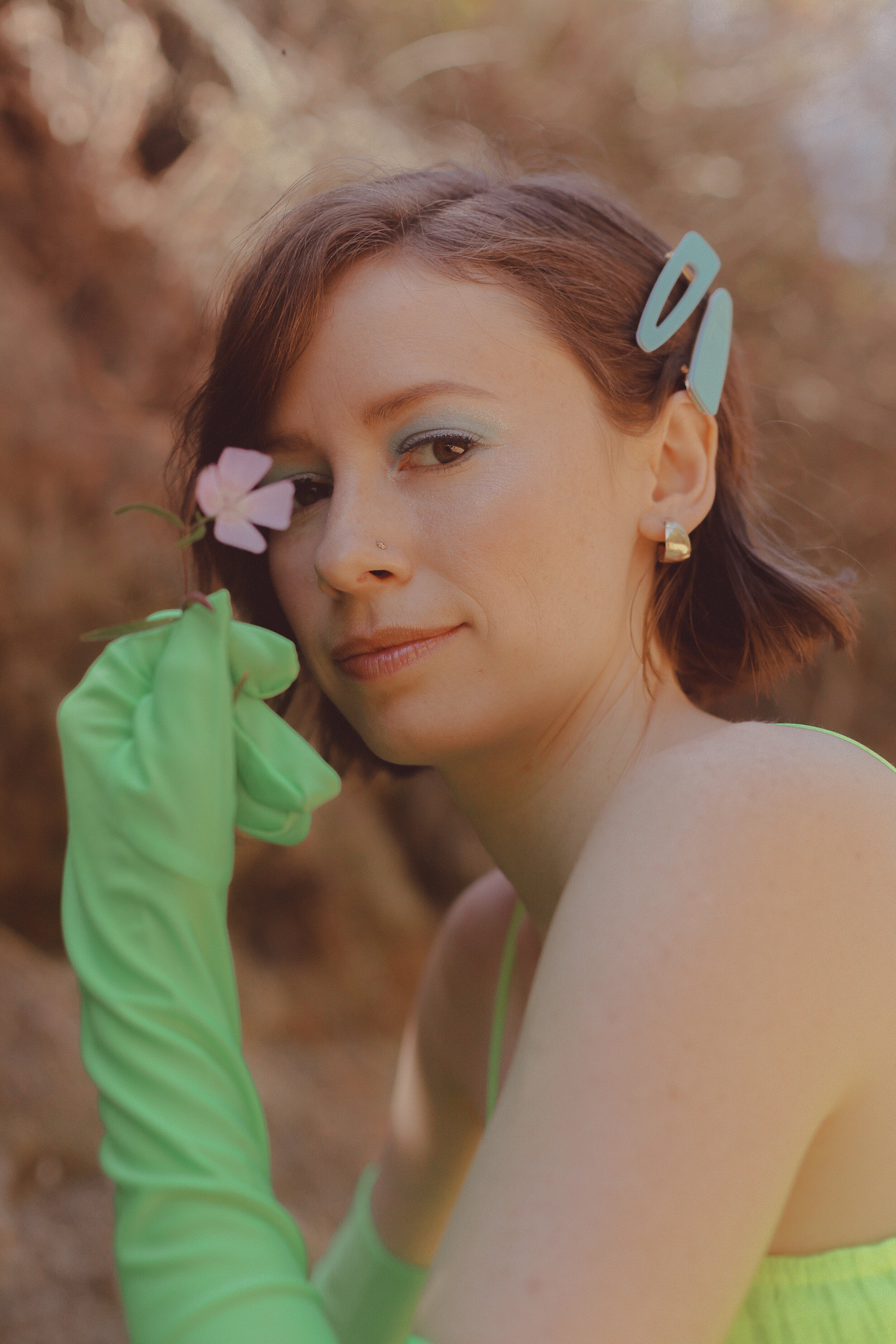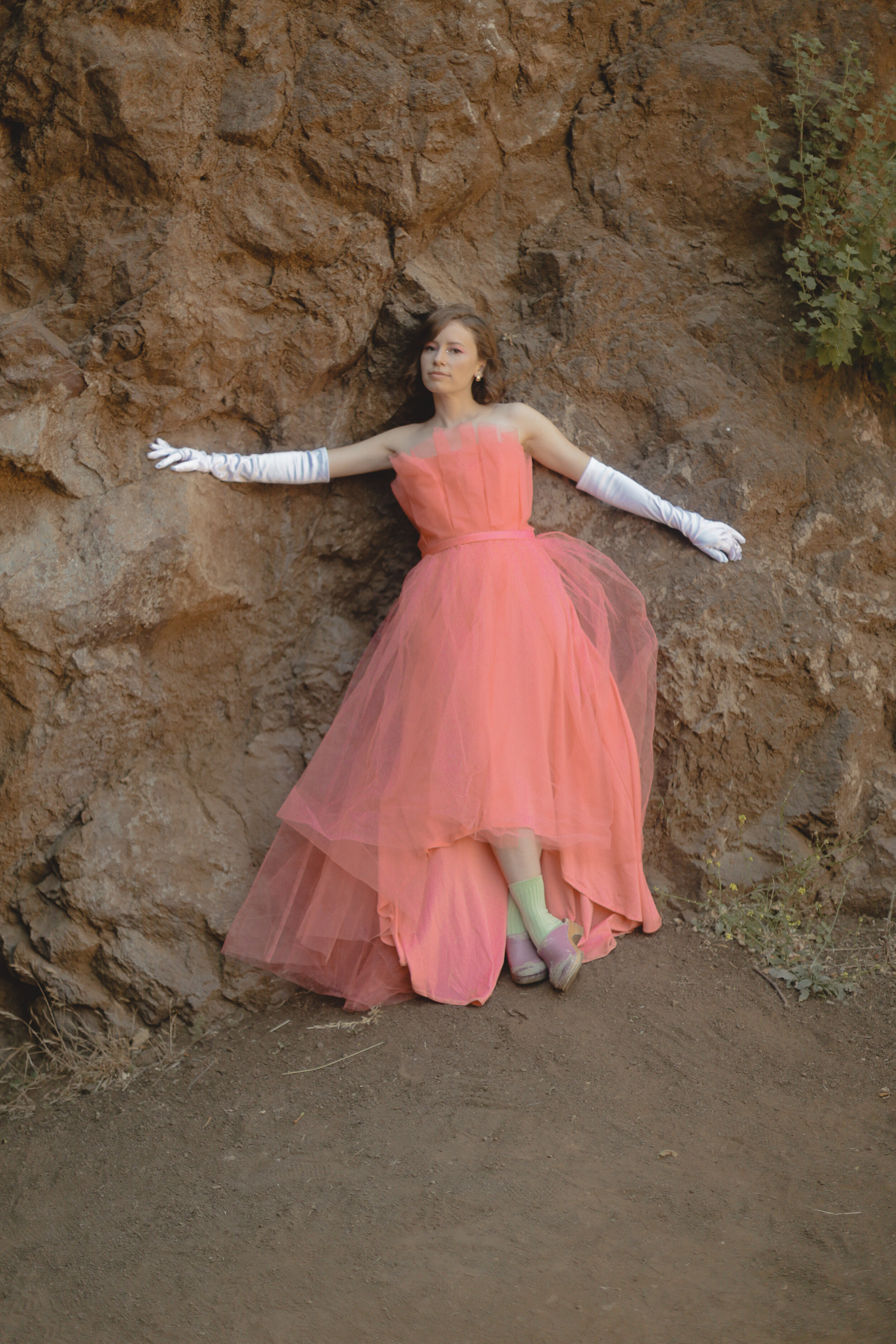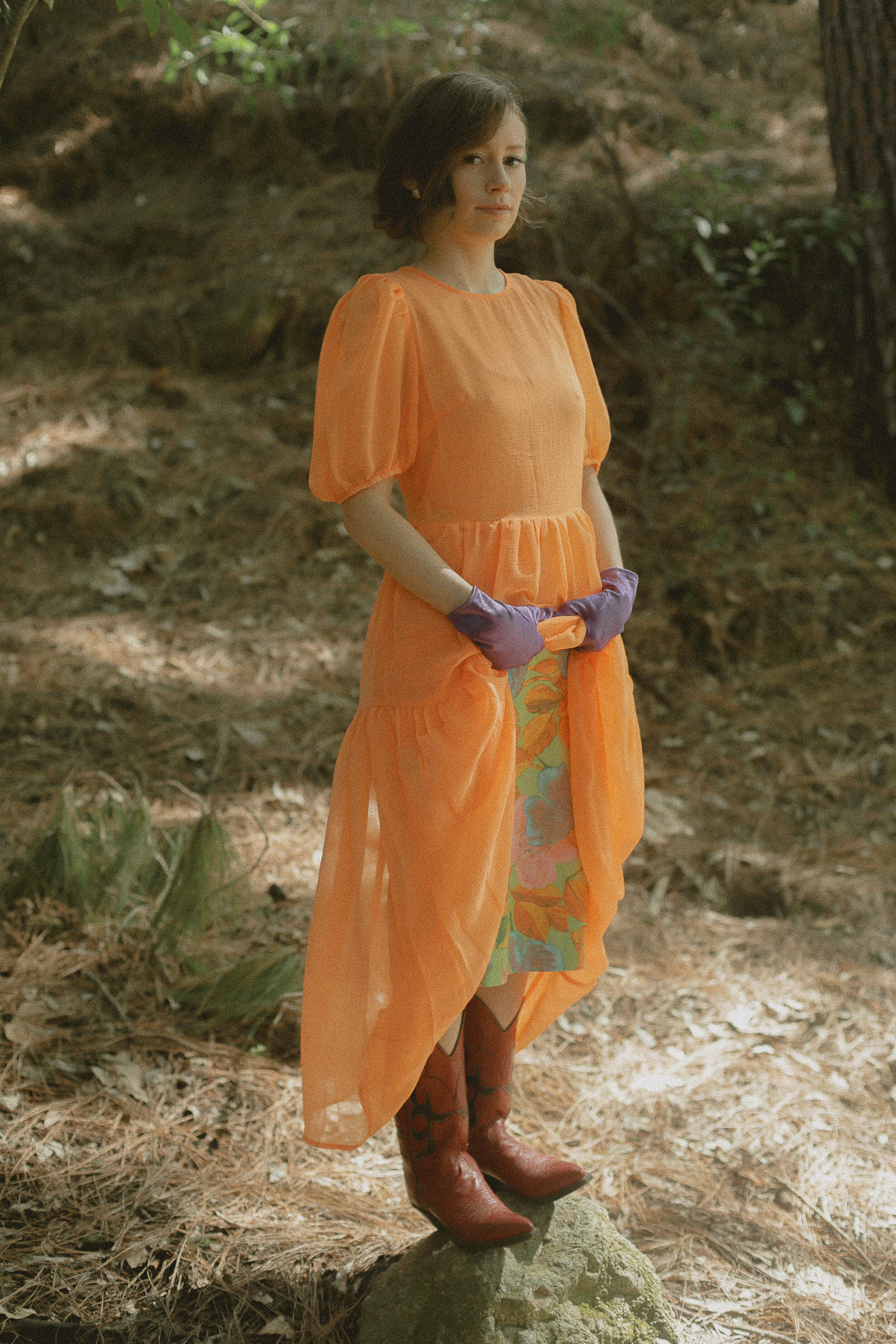Auri Jackson
⤏ IN CONVERSATION WITH ALANA HOPE LEVINSON
⤏ PHOTOS BY RIKKÍ WRIGHT
⤏ PUBLISHED OCTOBER 2020
Auri Jackson’s videos go viral — but not they’re not what you’d expect. She doesn’t prank anyone, or master a dance routine, or make it look like her dog can lip sync. Instead, her work as a video producer at BuzzFeed takes on environmental topics, the kinds of stuff that can be hard to stay awake for in class, let alone share on social media. But during the past five years, Jackson’s made over a hundred videos, and mastered the art of creating environmental content that’s both entertaining and informative. Something like “I Tried To Make Zero Trash For 30 Days” has garnered 5.5 million views, and “I Got 100 People To Boycott Straws For A Week” clocks in at around 7 million. Even better: Jackson has found a way to parlay her online popularity into IRL community work, hosting workshops on how to move towards a zero-waste lifestyle. In this interview, we discussed how to turn views into activism, sustaining a healthy digital ecosystem, and the pandemic’s impact on the environment.
ALANA HOPE LEVINSON: How you would describe yourself?
AURI JACKSON: I’m 29. I’m from San Diego. I lived in New York for a while, then San Francisco, and now LA. I originally started as a writer and director, which I still am, but I used to make narrative content that was more comedy based. Then I got a job at BuzzFeed in 2014. My job now is a lot different than how it started. I started making videos about trending topics, but I wanted to focus more on stuff that I cared about. So, I carved out a little position making environmental content. Now I make videos about the environment and climate change in a way that makes people care.
AL: So your personal interest in environmentalism is what made you start making these videos?
AJ: No one at BuzzFeed was asking me to make videos about the environment, I kinda stumbled onto it myself. I think the assumption at BuzzFeed was that environmental content hadn’t done well in the past, so why make more? But I made a video in 2015 where I tried to not make trash for 30 days, and that changed my whole life. I did that video because I was interested in the environment, but I hadn’t taken any real action. Once I made that video, I became zero waste. It was like a gateway drug into me becoming active in environmentalism.
AL: Obviously, the idea is to spread awareness about the environment, but what do you think the videos are accomplishing? Have you seen real change be sparked by them?
AJ: My favorite thing about making these videos is that, about once a week, I get girls of all ages reaching out, asking to interview me for their school projects. Of course we need systematic change, but I think individual action paired with larger government and corporation action creates a tangible difference. So really, the goals of the videos are to raise awareness and to inspire people to take little steps in their own lives to be more eco-friendly.
AL: What would you say to people who think the problem isn’t a lack of individual action, but what we really need is help from the government?
AJ: The most sustainable thing you can do is vote. Individual action is important, but the problem of climate change is so big we need everyone doing everything. We don’t need one thing or the other, we need individual action and government action on climate change.
“The narrative that I’m pushing is very counter to a lot of the content on BuzzFeed.”
AL: A lot of people would say that BuzzFeed is a hallmark of digital consumerism. They’re known to pump out video after video in very unsustainable ways, in terms of how they impact the content ecosystem. How does that function in tandem with your work?
AJ: I’m a producer with free reign to make whatever videos I want, so I take that as a responsibility to make environmental content. I’m kind of sheltered from the branded side of things. The narrative that I’m pushing is very counter to a lot of the content on BuzzFeed, so I guess I just appreciate that I’m allowed to do it. I could do it on my own, but I would get a lot less views. So the way I look at it is: I’m going to harness this massive company’s viewership and get out my eco propaganda!
AL: You have a video titled, “I Want You to Stop Recycling.” I totally get that as a clickbait strategy, but the intent of the video is encouraging people to create less waste in the first place. Did you come up with that title yourself?
AJ: I came up with that. For me personally, I’m trying to get an environmental message out. If I work hard on a video, I want people to watch it. I’m going to do whatever is in my power to get people to click on the video. Sometimes it’s a little subversive, but the message of that video is truly that I do want people to stop recycling! Only 9% of the plastic on this planet has actually been recycled*, so it’d be much more effective for people to refuse plastic in the first place.
AL: There’s still harm that’s done in the ways in which BuzzFeed farms these videos out. How do you find a balance?
AJ: I’m definitely part of the machine and don’t abdicate myself of guilt. I could be a purist, and have my own website that wasn’t involved with these platforms, but then people wouldn’t be watching my work. So, for me, the viewership of these environmental messages is worth it. But that’s definitely a larger conversation to be had about living in a capitalist society.
AL: What are some environmental takeaways from what’s happening right now with the pandemic?
“There’s something to say about the massive scale in which the world has mobilized to flatten the curve. That’s what we need to do with climate change.”
AJ: What I think is interesting about Coronavirus is that we’ve seen how people have mobilized in tandem with the government to flatten the curve. I feel like that’s something we can apply to climate change. Climate change is similar to Coronavirus in its progression. When it started, you had a lot of experts saying, “This is a problem.” But a lot of regular people were saying, “Oh, I don’t know.” I think there’s something to say about the massive scale in which the world has mobilized to flatten the curve. That’s what we need to do with climate change. The pandemic is very serious, and is not the way I’d like to see this practice run happening, but I think there are valuable skills we’re learning that can apply to taking action around climate change.
Another side effect is that the air quality in cities has been so amazing. Of course, I’d like to see this happening without the cost of human life, but it’s amazing to see that we can actually stop. The book “The Future We Choose” outlines two scenarios for 2050. In one, we’re able to limit warming 1.5 degrees, and the world moves to telecommuting. To be able to see that in action alleviates some concerns.
AL: I think the pandemic has really laid bare all these systemic problems. What do you think needs to happen for us to go from, “Wow, isn’t it cool that there’s less smog now,” to full blown change?
AJ: I’m hopeful that we’re going to pivot and make some changes, but I’m also wary. I don’t think we have the luxury to pull the covers over our head. We’re at such a critical time. By 2030, we need to halve our emissions, and by 2040, we need to be at net zero emissions.** It seems super unattainable, but there are countries — like Costa Rica who are running off 100% renewable energy — that are doing it. A book called “Art and Energy” talks about the culture that comes with different energy sources. The culture that came out of coal was all about production and people working hard. The culture that came out of oil was consumption and the concept that everything can be made quickly and cheaply. But, I’m hoping that the culture that comes from renewable energy is one that’s more about regenerating things and being more in balance with the Earth.
AL: Do you have any tips or tricks on how to be a good environmentalist right now?
“We don’t need a handful of people doing zero waste perfectly. We need everyone doing zero waste imperfectly.”
AJ: Voting is a big one. Individual action is great, but we need systematic change and that starts from the local level. Try to not use disposables. Bring your coffee cups or limit to-go packaging. I go to the farmer’s market to get my produce package-free.
Another thing people can do to care for the environment is look into how your apartment or house is getting power! There are third-party energy companies that will help you source renewable energy to your apartment! I was able to transfer 50% of my energy to renewable [energy] for $0.
I don’t know who said it first but, we don’t need a handful of people doing zero waste perfectly. We need everyone doing zero waste imperfectly. Whatever you can do to reduce is super exciting. I’m only interested in being people’s cheerleader, not the police. No one wants to be told what to do. In the videos I make, I explore different avenues that anyone can try if they’re interested in living more sustainably. Zero waste isn’t new! This is something our grandparents were doing and an ethos indigenous cultures are still living by. It has become this trendy thing that’s being promoted by white ladies, like myself. Some have been saying you need to buy a lot of things, but you don’t need to buy things in order to be zero waste. In fact, it’s more zero waste to not buy anything. I’d also like to say that zero waste is only one piece of the puzzle.
*“Planet or Plastic,” 2017 (National Geographic)
**UN Environment Programme
⤏ BUY THE PRINT EDITION OF JR HI THE MAGAZINE | ISSUE 010 HERE.
⤏ ALANA HOPE LEVINSON (SHE/HER) IS DEPUTY EDITOR AT MEL, WHERE SHE OVERSEES FEATURES AND SPECIAL PROJECTS. SHE SPECIALIZES IN EDITORIAL STRATEGY FOR NEW MEDIA VENTURES, WITH STINTS AT TALKING POINTS MEMO, MEDIUM AND FUSION. OCCASIONALLY, IF YOU ASK NICELY, SHE WILL WRITE.






